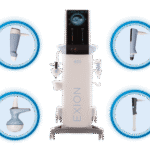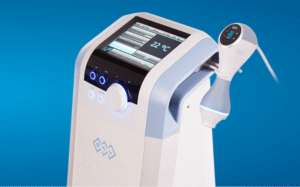Empower yourself by understanding who should take HRT (Hormone Replacement Therapy), its benefits, and how it can improve the quality of life for individuals experiencing hormonal imbalances. This knowledge will give you a sense of control and confidence as you learn if HRT is suitable for you.
Hormone Replacement Therapy (HRT) is a medical treatment designed to balance hormones that may become deficient or imbalanced due to aging, menopause, or other health conditions. Understanding who can benefit from HRT and whether it’s the right choice for you is essential for improving quality of life. This blog post explores the key reasons for taking HRT, the benefits, and the considerations individuals should make before starting the treatment.
Overview of the Blog Post
In this post, readers will learn:
- What Hormone Replacement Therapy (HRT) is.
- The symptoms of hormone imbalance and who might benefit from HRT.
- Specific groups of people who should consider HRT.
- The benefits and risks of HRT.
- How to decide if HRT is the proper treatment for your health needs.

What is Hormone Replacement Therapy (HRT)?
Hormone Replacement Therapy (HRT) is a treatment that supplements or replaces hormones such as estrogen and progesterone, which naturally decline as people age, particularly during menopause. In some cases, men may also benefit from HRT when testosterone levels drop due to aging or other factors. The primary goal of HRT is to restore hormone balance and reduce symptoms associated with hormonal deficiencies.
Signs You May Need HRT
Not everyone experiencing hormonal changes needs HRT, but there are specific signs that indicate it could be beneficial. These include:
- Hot Flashes and Night Sweats: These are common symptoms of menopause caused by a drop in estrogen levels.
- Mood Swings: Hormonal imbalances can affect mood, leading to anxiety, depression, or irritability.
- Sleep Disturbances: Difficulty sleeping or insomnia is often linked to menopause or aging-related hormone changes.
- Fatigue: Despite adequate sleep, chronic fatigue can indicate low hormone levels.
- Low Libido: A decrease in sexual desire is shared with hormonal changes, especially during menopause or andropause (in men).
Who Should Take HRT?
Hormone Replacement Therapy is not suitable for everyone, but certain groups of people are more likely to benefit from it:
Postmenopausal Women
One of the most common reasons women seek HRT is to alleviate symptoms associated with menopause. After menopause, women experience a sharp decline in estrogen and progesterone, which can cause various physical and emotional symptoms. Women who are in their 40s or 50s and are suffering from severe menopausal symptoms should consider taking HRT.
Individuals With Early Menopause
Women who experience early menopause, typically before age 40, may also benefit from HRT. Early menopause can increase the risk of osteoporosis and heart disease. Hormone replacement can help prevent these long-term health risks while reducing menopausal symptoms.
Men With Low Testosterone
HRT is not just for women. Men experiencing symptoms of low testosterone, such as fatigue, decreased muscle mass, or low libido, may benefit from testosterone replacement therapy. Testosterone levels naturally decline as men age, and HRT can help restore energy, improve mood, and enhance overall well-being.
Those With Medical Conditions Affecting Hormone Production
Certain medical conditions, such as hypothyroidism or surgical removal of ovaries, can lead to hormone imbalances. In these cases, hormone replacement therapy is a critical part of treatment, helping restore hormone levels and maintain a healthy balance in the body.

Benefits of Taking HRT
HRT offers many advantages, especially for individuals suffering from hormone deficiencies. Some of the most notable benefits include:
- Relief from Menopausal Symptoms: HRT can reduce or eliminate common symptoms such as hot flashes, night sweats, and mood swings.
- Improved Bone Health: Estrogen plays a crucial role in maintaining bone density. HRT helps reduce the risk of osteoporosis and bone fractures, particularly in postmenopausal women.
- Better Sleep: By balancing hormones, HRT can help improve sleep patterns, reducing insomnia and night sweats.
- Enhanced Mood and Mental Health: Hormones significantly impact mental health. HRT can stabilize mood, alleviate depression and anxiety, and improve overall emotional well-being.
- Increased Libido: HRT can help restore sexual desire and improve sexual function in both men and women experiencing hormone-related declines.
Potential Risks and Considerations
While Hormone Replacement Therapy has many benefits, it’s essential to be aware of potential risks and side effects. Before starting HRT, you should consult a healthcare provider to discuss your needs and health conditions. Risks to consider include:
- Increased Risk of Blood Clots: Some forms of HRT, mainly those taken orally, can slightly increase the risk of blood clots.
- Breast Cancer Risk: Long-term use of HRT, especially combined estrogen and progesterone therapy, may increase the risk of breast cancer in some women.
- Heart Disease: There may be a slight increase in the risk of heart disease or stroke, especially if HRT is started later in life.
- Side Effects: Common side effects of HRT can include bloating, headaches, breast tenderness, and mood swings. These side effects often subside after the body adjusts to the hormones.
 YouTube·PBS NewsHour
YouTube·PBS NewsHourHow to Decide if HRT is Right for You
Deciding to start HRT should be based on a combination of factors, including your symptoms, overall health, and personal preferences. Here’s how you can determine whether HRT is the right choice for you:
- Please consult With a Healthcare Professional: It’s essential to speak with your healthcare provider to discuss your symptoms and health history. They can help you weigh the benefits and risks of HRT.
- Consider Your Family History: If you have a family history of breast cancer, heart disease, or blood clots, your doctor may advise against HRT or recommend alternative treatments.
- Evaluate Your Symptoms: If you are experiencing severe menopausal symptoms or low testosterone-related symptoms that significantly affect your quality of life, HRT may be a practical solution.
Judgment: Is HRT Right for You?
Hormone Replacement Therapy can be life-changing for individuals dealing with the symptoms of menopause, andropause, or hormone-related medical conditions. Whether you are a woman going through menopause or a man with low testosterone levels, HRT can help improve your quality of life. However, it’s essential to consider the benefits and risks before starting treatment and consult a healthcare provider to determine if HRT is the best option for your needs.
By reading this blog, you now better understand who should take HRT, its benefits, and how to make an informed decision about starting treatment. At Collective Aesthetics, we offer personalized HRT solutions tailored to your unique health needs. Contact us to learn how we can help you restore your hormonal balance and improve your overall well-being.

Contact us
- Address: 6229 Miramar Pkwy Ste 7, Miramar, FL 33023, United States
- Phone: (305) 528-3360
- Email: info@collective-aesthetics.com
- Free Consultation: http://collective-aesthetics.com/appointment/
- Website: www.collective-aesthetics.com
- Contact Form: http://collective-aesthetics.com/contact/
Useful Links
What Is Hormone Replacement Therapy (HRT) and How Does It Work?
Top Benefits of Hormone Replacement Therapy for Women
Bioidentical Hormones vs. Synthetic Hormones: Which Is Best?
Common Myths and Facts About Hormone Replacement Therapy
HRT for Men: Addressing Low Testosterone and Its Effects
How Hormone Replacement Therapy Can Improve Your Quality of Life
Is Hormone Replacement Therapy Safe? Debunking Safety Concerns
HRT and Weight Loss: Does Hormonal Balance Help Shed Pounds?
Hormone Replacement Therapy and Bone Health: Preventing Osteoporosis
HRT for Perimenopause: What You Need to Know
What are the signs that you need hormone replacement therapy
Bioidentical Hormone Replacement Therapy (BHRT) vs. Traditional HRT: Which is Right for You?










